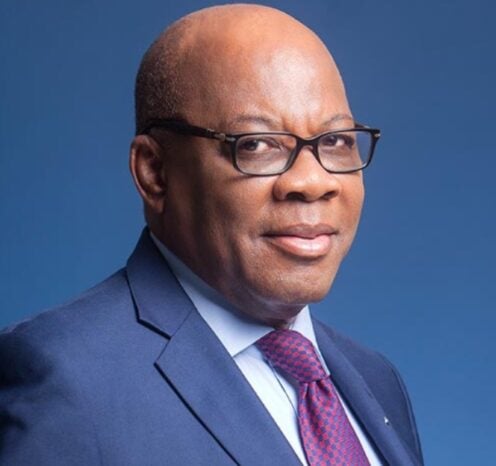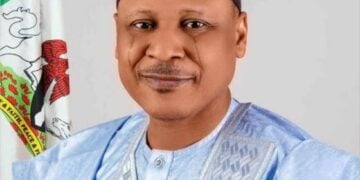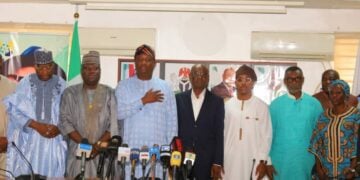A former President of the Nigerian Bar Association (NBA), Dr Olisa Agbakoba (SAN), has stated that the 2027 general election will be Nigeria’s last peaceful opportunity for change and to save the country from instability.
Agbakoba warned that the current unitary-federal structure was unsustainable and that unless Nigeria devolves power to the states and regions, no reform—no matter how well-intended—can succeed.
The senior lawyer, who made the assertions, spoke to journalists in Lagos, insisting that a new constitution, driven by the people, was essential for a stable and equitable nation.
He said, “True nation-building cannot be achieved without decentralisation, equity, and a people-driven constitution. If we get 2027 wrong, the consequences will be far-reaching and unpredictable. But if we get it right, we can lay the foundation for a new Nigeria.”
Agbakoba warned that the country is trapped in a “fatal illusion of federalism” and urgently needed a new constitution based on true federalism, significant devolution of powers, and fiscal autonomy for states.
The human rights lawyer further claimed that the country cannot build a prosperous Nigeria on a shaky foundation and that 25 years of constitution amendments have been unsuccessful.
He claimed that the 1999 Constitution has “failed and is irredeemable,” emphasising that only a new, people-driven constitution that reflects the country’s diversity can prevent Nigeria from falling deeper into instability.
Agbakoba maintained that devolution, rather than superficial amendments to the constitution, was crucial for economic transformation, noting that Nigeria could unlock over N500 trillion in economic value through true federalism.
“We can no longer pretend that the 1999 Constitution can deliver progress. It was designed for a command structure, not for a federation. It is time to adopt a completely new legal framework,” he stated.
The lawyer explained that repeated constitution review exercises have failed to address fundamental governance problems, including over-centralisation of power, weak federating units, and lack of accountability.
“Tinkering at the edges of a flawed system will not bring about the transformation the country urgently needs,” he added.
He stressed that Nigeria’s survival depends on the genuine devolution of powers to its federating units. “The federal government has become too powerful and unresponsive. It must shed some authority and allow states to take responsibility for their own development. This is the only way to make Nigeria work,” he said, advocating for the establishment of state police as a critical step towards improving internal security.
“It is absurd that governors are called chief security officers but cannot control the police. States must have their own police, manage their resources, and generate power without unnecessary federal bottlenecks,” he argued.
Agbakoba also outlined an economic restructuring plan, allowing states and regions to drive development from the ground up. He pointed out that the current dependence on federal allocations has fostered a culture of dependency and poor governance at the state level. “When states control their resources and have clear responsibilities for development, they will innovate, compete, and provide better services,” he explained.
He noted that the centralised structure has stifled initiative and resulted in a bloated federal government incapable of efficiently delivering basic services. He advocated a leaner federal government, limited to core national functions such as defence, foreign affairs, monetary policy, and immigration, while states manage most other responsibilities.
Warning against delays, Agbakoba stated that failing to act now would have severe consequences. “2027 offers us one last peaceful opportunity to fix Nigeria. If we miss it, the alternative could be chaos. We need a new national consensus that reflects the will of the people,” he said.
He stressed that reforms must be comprehensive and not selective, identifying six key areas: federalism and devolution of powers, state policing, resource control and fiscal autonomy, constitutional reform, judicial independence, and political accountability.
“We must make 2027 a turning point. This is not about cosmetic amendments; it is about rewriting the rules of engagement for a united, peaceful, and prosperous Nigeria,” he added.
He urged political leaders, civil society, professional associations, and citizens to unite around a shared vision for change, rather than allowing politicians to dictate the reform agenda for narrow interests. “Nigeria belongs to the people, not politicians. We must seize this moment to reclaim the country and reshape its future,” he stated.





